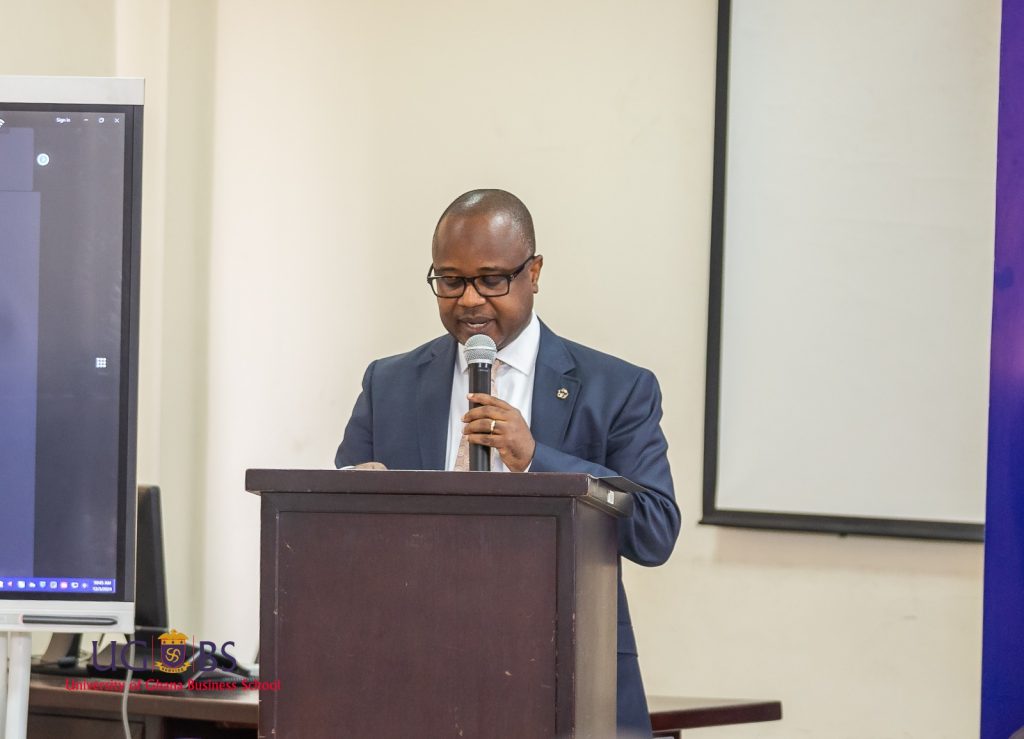By Morkporkpor Anku
Accra, Dec. 5, GNA – Dr. Maxwell Opoku-Afari, the First Deputy Governor, Bank of Ghana, says to mitigate risk, it is important to focus on implementing policies that will lay a solid foundation for effective adoption of AI solutions.
He said there was the need to prioritise investments in broadband connectivity and digital capabilities to create an environment conducive to AI innovation.
Dr. Opoku-Afari was speaking at the University of Ghana Business School, University of Mauritius, and Stellenbosch University 2nd Emerging Countries International Conference on Business, Finance, and Economics in Accra.
The conference was on the theme: “The Intersection Between AI, Productivity, and Growth in Emerging Countries.”
He said improving the country’s workforce through education and training programmes would be essential.
“We need to equip our young population with the skills necessary to thrive in an AI-driven economy and encourage homegrown tech startups that will help build a resilient local ecosystem capable of developing solutions tailored to our unique challenges,” he added.
The Deputy Governor said policymakers should develop regulations that promoted ethical AI use while protecting workers from potential job losses due to automation.
He said strengthening partnerships between governments, academia, and private sectors could facilitate knowledge sharing and drive innovation.
He said in Ghana, the introduction of AI-enabled digital banking services was being harnessed to simplify credit scoring, allowing SMEs to access much-needed financing.

This, in turn, boosts entrepreneurial activity, spurs job creation, and strengthens the economy.
He said agriculture remained the backbone of many economies in the sub-region, employing a significant proportion of the population.
The Deputy Governor said in Ghana, startups like Farmerline use AI-powered platforms to provide farmers with weather forecasts, market prices, and access to funding.
Similarly, AI-driven drones are helping to monitor crop health and optimise irrigation practices, significantly boosting productivity.
He said in healthcare, AI was being used to address critical gaps in infrastructure and workforce shortages.
For example, the Ghanaian company mPharma uses AI algorithms to predict medication demand and manage pharmaceutical supply chains, ensuring that essential drugs are available when and where they are needed.
He said AI tools were also being used to enhance diagnostic capabilities and improve patient care in countries like South Africa, where medical professionals are scarce and such innovations not only save lives but also optimise healthcare delivery systems.
Dr. Opoku-Afari said in the financial sector, AI-driven fintech solutions promoted financial inclusion.
He said platforms like Paystack and Flutterwave use machine learning to detect fraud and simplify transactions for small and medium enterprises.
GNA